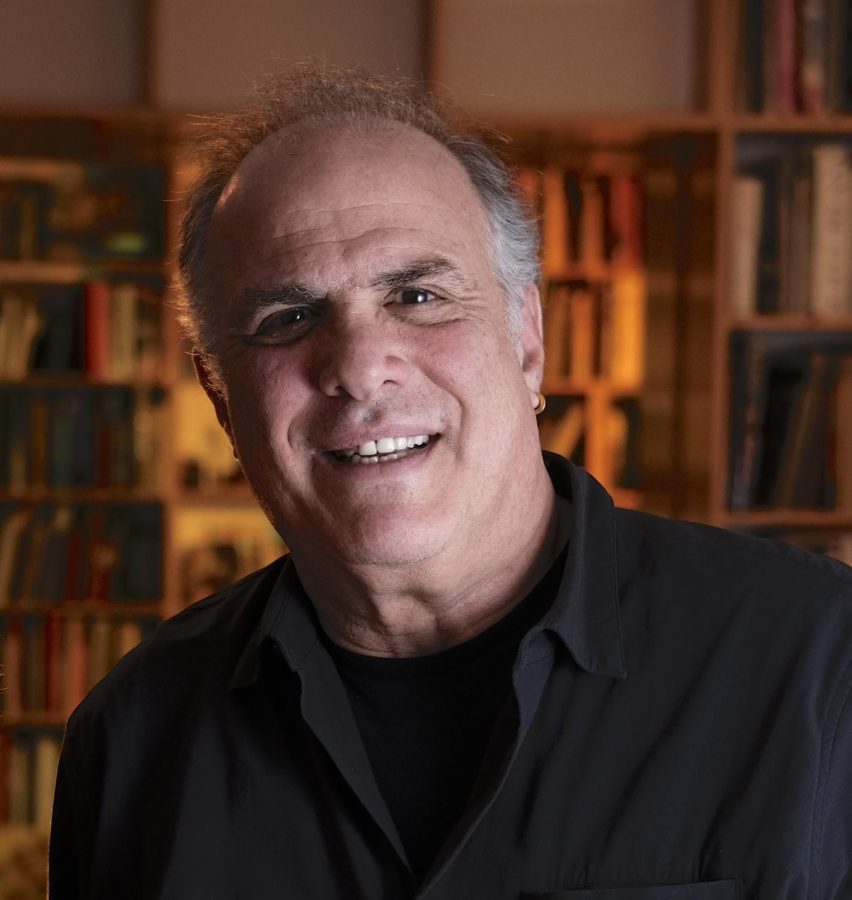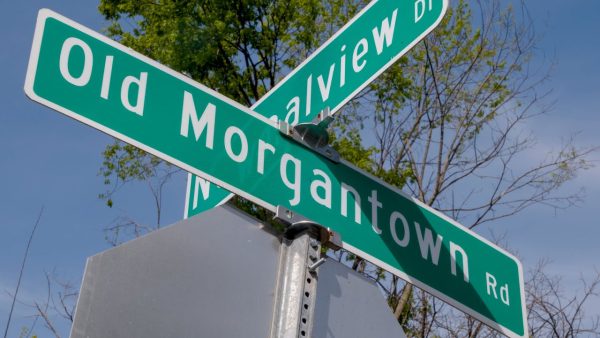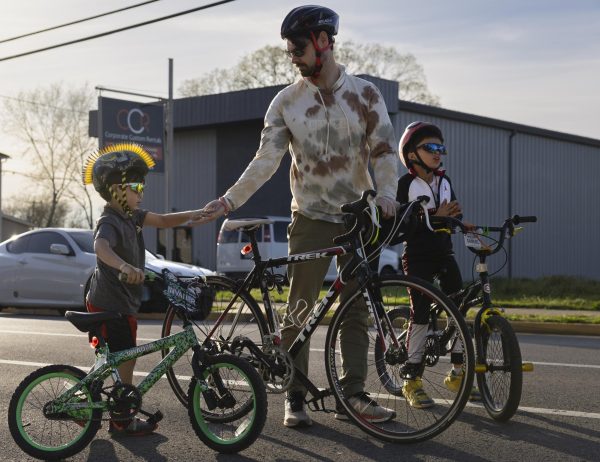Filmmaker discusses processes behind new film Bill Traylor: Chasing Ghosts
February 17, 2020
Over the next three months, Bowling Green is hosting a series of films as part of the Southern Circuit Tour of Independent Filmmakers. The first of three films being shown is Bill Traylor: Chasing Ghosts.
Bill Traylor: Chasing Ghosts is a feature-length documentary film directed, produced and edited by Jeff Wolf.
It tells the story of Bill Traylor, a man born into slavery in 1853. It recounts his experiences in slavery until freed by the emancipation proclamation and then as a sharecropper until his 80s.
In the 1930s, he moved to Montgomery, Alabama where he became homeless. He spent his time making art from his memories, and made over 1,000 pieces from 1939 to 1942.
In a non-traditional format, Wolf uses tap dance, period music and spoken word alongside archival photos and interviews with family to create a full image of one of America’s most important artists.
Wolf first came across Traylor’s work in 1982 at the Corcoran Gallery of Art in Washington D.C. The exhibit was called “Black Folk Art in America from 1930 to 1980,” and Traylor was featured as one of the artists.
His film first premiered at the Smithsonian American Art Museum in December 2018. At the time, there was an exhibit called “Between Worlds: The Art of Bill Traylor.” It was the first one-man art show by anyone born into slavery.
“I was always interested in this kind of art,” Wolf said. “I think it is very interesting to see that moment when somebody puts art together in their minds and decides to put it out there.”
Wolf believes Traylor’s story is very relevant today, especially for students. He said Traylor’s story gives attention to history not detailed in schools. It also teaches life lessons about self-expression in a time of obstacles and hardships.
“This story is like a look into your grandfather’s cedar chest,” Wolf said. “It is a way of seeing the time period while being in his shoes.”
With the lack of documentation of the south between World War I and World War II, Wolf had a difficult time learning more about Traylor. He eventually found the work of two photographers, Rudy Burkhardt and Mary Morgan Keipp, who had documented Traylor. There are about eight or nine photos of Traylor that exist, so Wolf had to rely on some of Traylor’s drawings, which are believed to be autobiographical, to keep him alive.
Wolf used some non-traditional elements to his documentary as well. These consisted of tap, spoken words, and music. The purpose of this was to bring central themes, such as movement, and time period context to light.
“Tap is all about action,” Wolf said. “We researched films with famous African American tap dancers and worked with dancers to recreate those moves.”
He found 43 archival pieces of music to use in the film, as well as footage from Montgomery in the 1940s. Wolf said the key was finding the archival images, readings and music to sync up with the story.
All of this research started in 2010. Wolf calls the next six years a “listening tour,” as they went around Montgomery interviewing people to get a sense of the story. It wasn’t until 2016 when production on the film began.
“Acquiring the material took the most time,” Wolf said. “We had to do a lot of research on different aspects of the world.”
The biggest challenge Wolf faced was having to dig so deep to find more about Traylor’s life. He said he had to find people, places and diaries to finally paint the whole picture of who Bill Traylor was. At first, a lot of people didn’t want to talk to him, but he assured them he wanted to tell Traylor’s story in an important way.
“It takes a bit of context to appreciate his work so I wanted to create a gateway to understand the breadth of his accomplishments,” Wolf said. “You get to see his work in a different context, with biography, history, music, folklore and dance.”
Bill Traylor: Chasing Ghosts will be playing at the Capitol Arts Center on Feb. 18 at 7 p.m. There will be a Q&A with Jeff Wolf after the screening.
Features reporter Eleanor Tolbert can be reached at 270-745-6291 and [email protected]. Follow her on social media at @ellietolbert.

























